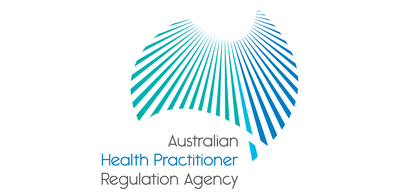Occupational Therapy
All Bounce Back Occupational Therapists are fully qualified and registered members AHPRA.
Our team are qualified and experienced in working with a wide variety of clients from early Paediatrics, through to elderly. Our Occupational Therapists (OT’s) offer a broad range of different services that are always evidence based, best practice.
We strive to improve the lives of individuals through helping to create the most supportive, helpful, and safe environments at home, school, and in our clinics to help improve independence, and confidence.
A specialist profession requiring a 4-year University qualification, OT’s work with injured, disabled, or delayed clients through the use of a variety of assessment tools and methods to assess function, dysfunction, and capacity. This is done in order to determine how a client will most benefit from assistance to perform daily tasks. These tasks can be related to activities of daily living (ADL’s), employment or leisure tasks.
Following assessment OT’s develop an intervention program to assist their client to perform these tasks. These interventions can include; assistive devices, alternative method training, skills development, education, and/or assisting to teach others how to effectively assist.
OT’s can help with a wide variety of problems including:
- Sensory processing
- Developmental delays
- Fine/gross motor skills training
- Motor planning, concentration & attention
- Emotional regulation
- Self-care (hygiene, toileting, sleep, dressing)
- Safety & Independence at home
- Work task/Ergonomic Assessments
- Activities of Daily Living Assessments
- Equipment prescription, Assistive Technology
- Home modifications
- Functional capacity assessments
- Supported independent living (SIL)
- Specialist disability housing (SDA)



Exciting January School Holiday Groups at Bounce Back Health!
Dear Families,
Our fun and supportive January School Holiday Group programs are starting soon – perfect for building skills, making friends, and having a great time!
Here are the details:
Primary School Prep (Ages 4-5) Tuesdays: 6th, 13th & 20th January Time: 12:30pm - 2:30pm
High School Preparation Tuesdays: 6th, 13th & 20th January Time: 12:00pm - 2:00pm
These school prep sessions are ideal for kids entering primary or high school in 2026, or those who transitioned in 2025 and could use extra support!
Junior Chefs Thursdays: 8th, 15th & 22nd January Time: 10:00am - 12:00pm
Video Games (Ages 7-13) Monday 5th January: 11:30am - 1:00pm Wednesday 21st January: 10:00am - 11:30am
Lego Masters Mondays: 5th & 19th January Time: 2:00pm - 3:00pm
Spaces are limited – please let us know ASAP so we can arrange enough clinicians to support the groups!
NDIS funding may apply. Secure your child’s spot today! Call: (08) 8520 6244 Email: infoge@bouncebackhealth.com.au
FOR ADITTIONAL DETAILS / BOOKING: bouncebackhealth.com.au/class-types/school-holiday-programs/ ... See MoreSee Less
0 CommentsComment on Facebook
... See MoreSee Less
0 CommentsComment on Facebook
📘 What is a Learning Disorder?
A learning disorder is not the same as Autism or ADHD. It means a child
may have difficulties in specific areas like reading, writing, spelling,
or math — even though their overall intelligence is not affected.
❗ Why it matters:
Sometimes parents notice their child struggling at school and think
they’ll “grow out of it.” But if left unsupported, learning
disorders can affect confidence, school attendance, anxiety, and
long-term challenges in daily life.
🎯 The good news:
With the right strategies, children can learn in ways that work for
them. Occupational Therapists (OTs) are highly skilled in supporting
children with learning disorders by building the foundations for
attention, memory, motor skills, and classroom success.
Want personalized support? At Bounce Back Health, our experienced
Occupational Therapists love to help children and adults build life-changing
skills.
📞 Call us: 08 8520 6244
📧 Email: infoge@bouncebackhealth.com.au
#LearningDisorders #Dyslexia #Dysgraphia #Dyscalculia #ChildDevelopment
#OccupationalTherapy #BounceBackHealth #NDISProvider #SchoolSupport
#EarlyIntervention ... See MoreSee Less
0 CommentsComment on Facebook
✨ CREATE A CALM BOX ✨
A simple but powerful tool to support emotional
regulation at home in a quiet space. Fill a box with comforting items—like fidgets,
soft toys, calming scents, or favourite music. When big feelings arise, encourage
children (or adults!) can use their calm box to ground themselves, feel
safe, and regain control. 🌈💛
Want personalized support? At Bounce Back Health, our experienced
Occupational Therapists love to help children and adults build life-changing
skills.
📞 Call us: 08 8520 6244
📧 Email: infoge@bouncebackhealth.com.au
#emotionalregulation #calmbox #occupationaltherapy #childdevelopment
#NDIS #parentsupport #autismsupport #sensorystrategies #BounceBackHealth ... See MoreSee Less
0 CommentsComment on Facebook
Understanding big emotions can be tough, but what if we made learning about
them a fun game?
One of our favourite ways at BBH to do this is with "Pretend
Play with Emotion Faces."
How to do it at home:
* Gather some paper, markers, and craft sticks.
* On the paper, draw a bunch of faces
showing emotions—happy, sad, angry, surprised, silly, scared, etc
* Cut them out and tape on a stick
* Time to play! Now, you can use these faces in a few ways. You can
take turns making the sound that goes with each emotion, or tell a short
story using a few of the faces. Another fun idea is to have your child
pick a face and tell you about a time they felt that way.
This simple activity helps children recognize and express their feelings
in a safe and playful way. It teaches them that all emotions are okay
and gives them the language to talk about how they feel.
Need more support?
Want personalized support? At Bounce Back Health, our experienced
Occupational Therapists love to help children and adults build life-changing
skills.
📞 Call us: 08 8520 6244
📧 Email: infoge@bouncebackhealth.com.au
#EmotionalRegulation #OccupationalTherapy #ChildDevelopment
#KidsActivities #SocialEmotionalLearning #SensoryPlay #ParentingHacks
#BounceBackHealth #Gawler #SouthAustralia ... See MoreSee Less
0 CommentsComment on Facebook